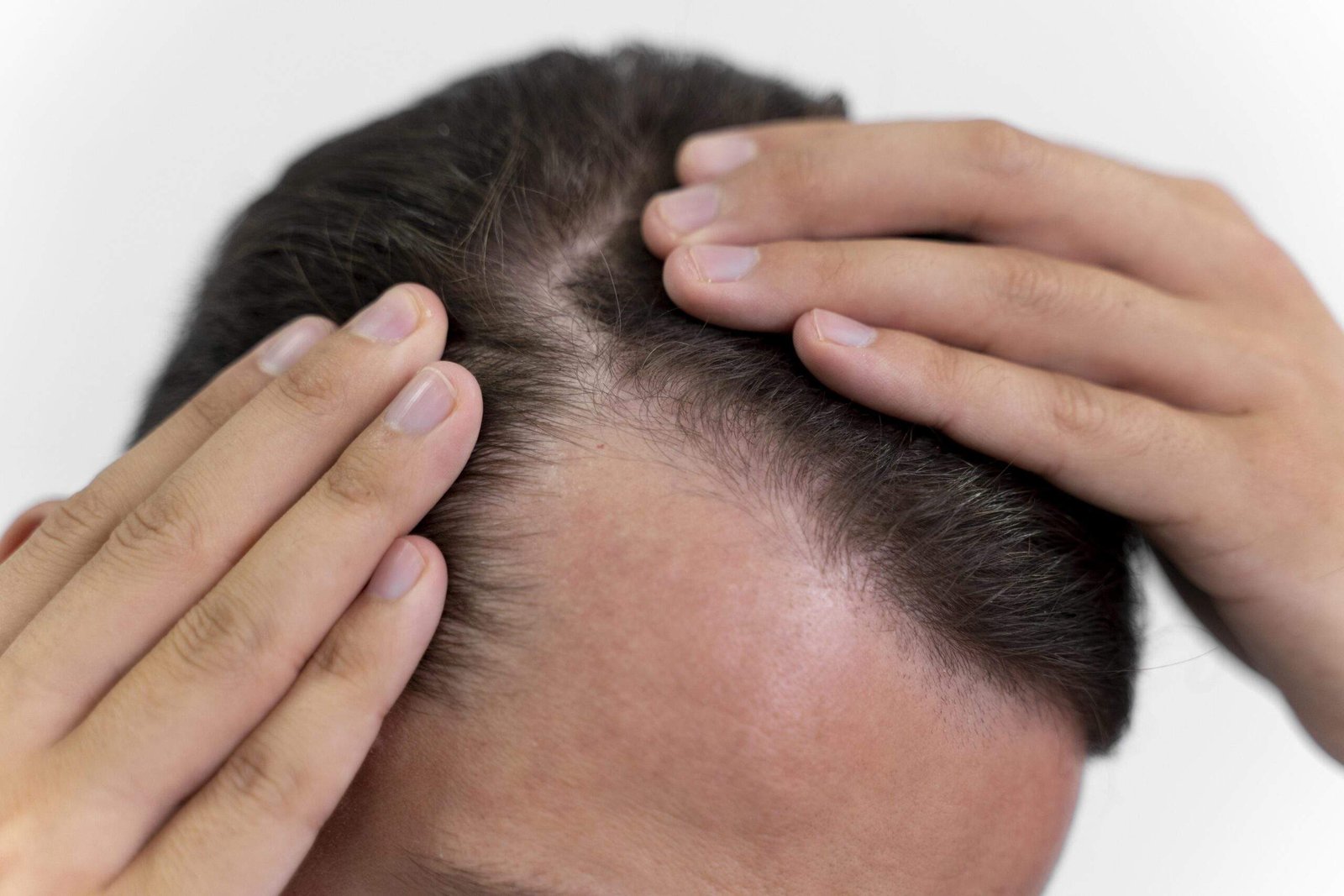Alopecia, also known as hair loss, affects millions of people around the world, and there are several possible causes.
While genetics can play a role in whether you experience it or not, you may be surprised to learn that stress or hormones can be factors too.
Learn about 10 hidden causes of alopecia that might surprise you and see if one applies to you or someone you know.
What is Alopecia
While alopecia might sound like something you want to stay away from, it’s a fairly common condition—and it doesn’t just impact humans.
There are three primary types of alopecia:
(1) Alopecia areata,
(2) telogen effluvium, and
(3) trichotillomania.
Alopecia areata happens when your immune system mistakenly attacks healthy hair follicles in your scalp or beard area, causing them to be permanently damaged.
Telogen effluvium occurs when your body experiences an abnormal hormone imbalance that leads to increased shedding of hair.
Trichotillomania involves an abnormal urge to pull out your hair.
Stress
Physical stress can cause many physical symptoms, including pain, fatigue, lack of appetite, and aches.
But there’s a good chance you might experience hair loss when your body is under extreme mental or physical stress.
Whether your hair falls out because of constant headaches, post-traumatic stress disorder (PTSD), or other health conditions that cause anxiety or frequent crying, one thing remains clear:
It’s not something to take lightly. If you notice sudden hair loss after experiencing prolonged stress, consult with your doctor right away.
He or she will likely refer you to a dermatologist for further evaluation. In some cases, alopecia areata may be linked to an underlying autoimmune disease such as lupus erythematosus (LE).
This condition causes inflammation in various parts of your body—including skin and scalp—and can result in permanent hair loss if left untreated.
If your doctor suspects an autoimmune disease is causing alopecia areata, he or she may order blood tests to determine whether LE is present.
Smoking
While cigarettes are touted as a cool way to look good, they don’t make your hair look good. Smoking can cause premature hair loss by damaging blood vessels in your scalp.
It causes inflammation, which then leads to scarring, infection, and hair loss in some cases. Try quitting to see if it helps regrow your locks—and so much more!
If you want to be happy, give up right away. You might also want to consider switching from regular cigarettes to e-cigarettes or vaping; according to Dr. Ian Smith of Vanderbilt University Medical Centre, electronic smoking may be even safer than traditional tobacco products because there aren’t any carcinogens involved with its use.
Plus, there isn’t any smoke inhalation or smoke smell when using e-cigarettes or vaping devices.
Medical conditions
Many medical conditions can cause you to lose your hair. One of these is alopecia areata, which causes patches of hair loss on any part of your body.
The disease most commonly affects women, but anyone can get it. Hair loss may happen in just one spot or you may have a widespread case that causes baldness on most parts of your head.
If alopecia progresses to total scalp hair loss, you could develop traction alopecia—which happens when there’s constant pulling on your scalp as a result of wearing braids or ponytails that put too much pressure on your hair follicles.
Medical treatments
According to The National Institute of Arthritis and Musculoskeletal and Skin Diseases, about three in four people with alopecia experience moderate to significant improvement in their hair regrowth with medical treatments.
Treatments for alopecia include corticosteroids, chemotherapy medications, or biologic agents that are injected into your body.
Corticosteroids may be used topically or injected into areas where hair loss occurs, while chemotherapy medications or biologic agents help stimulate your immune system to attack rogue cells (like those attacking your hair follicles).
If you have alopecia, talk to your doctor about whether a medical treatment could help you get back some of what you’ve lost.
Medications
A variety of medications can trigger alopecia, including some birth control pills. If you’re experiencing hair loss while taking a prescription drug, talk to your doctor about it—especially if you have been on that medication for more than three months.
Other medications that have been linked to hair loss include antidepressants (Zoloft), antifungals (such as ketoconazole, and Diflucan), chemotherapy drugs, blood pressure medication (such as beta blockers), and immunosuppressants.
Ask your doctor or pharmacist if you’re not sure whether a certain drug could be causing your hair loss. Switching medications can often help reverse hair loss in some people.
Hormonal changes
As you age, your body produces fewer hormones—particularly estrogen—which can lead to thinning hair in both men and women.
In midlife, more than half of women have some degree of hair loss (due primarily to hormonal changes).
Meanwhile, as early as age 30, 10 percent of men start losing their hair (again, hormonal changes are mostly to blame).
While there’s no proven way to prevent or slow down the process—and male-pattern baldness can’t be cured with any over-the-counter treatments—certain hairstyles may help camouflage areas where hair has thinned out.
If baldness bothers you, talk with your doctor about medications that promote regrowth or look into low-level laser therapy treatment.
Genetic causes
At least nine genetic loci have been identified as possibly being associated with AGA in humans. Within these loci, at least five genes are thought to be involved: SFRP1, WNT4, TGFBI, PRDX5, and PROKR2.
The strongest association for any of these single-nucleotide polymorphisms is with a variant of SFRP1.
An association has also been found for variants in other related genres such as WNT4, SP7, TGM3, MPLKIP, FOXO3A, RUNX3, SOX9, and others.
While these genes have not been confirmed by DNA sequencing, they are present on all human chromosomes.
Trauma-Induced hair loss (sexual assault, accidents, physical abuse, etc.)
Hair loss due to trauma is a common form of hair loss in both men and women. Trauma, such as a physical assault or accident, can cause an abrupt onset of diffuse hair loss in what’s known as alopecia areata (AA).
Hair usually grows back within months to years depending on where you are in your life cycle. When faced with sexual assault or an accident that causes significant trauma, consult with a physician as soon as possible to avoid potentially more serious health problems.




Undeniably believe that which you stated. Your favorite justification appeared to be on the web the easiest thing to be
aware of. I say to you, I certainly get annoyed
while people consider worries that they plainly don’t know about.
You managed to hit the nail upon the top and also defined out the whole thing without having side effect ,
people can take a signal. Will probably be back to get more.
Thanks